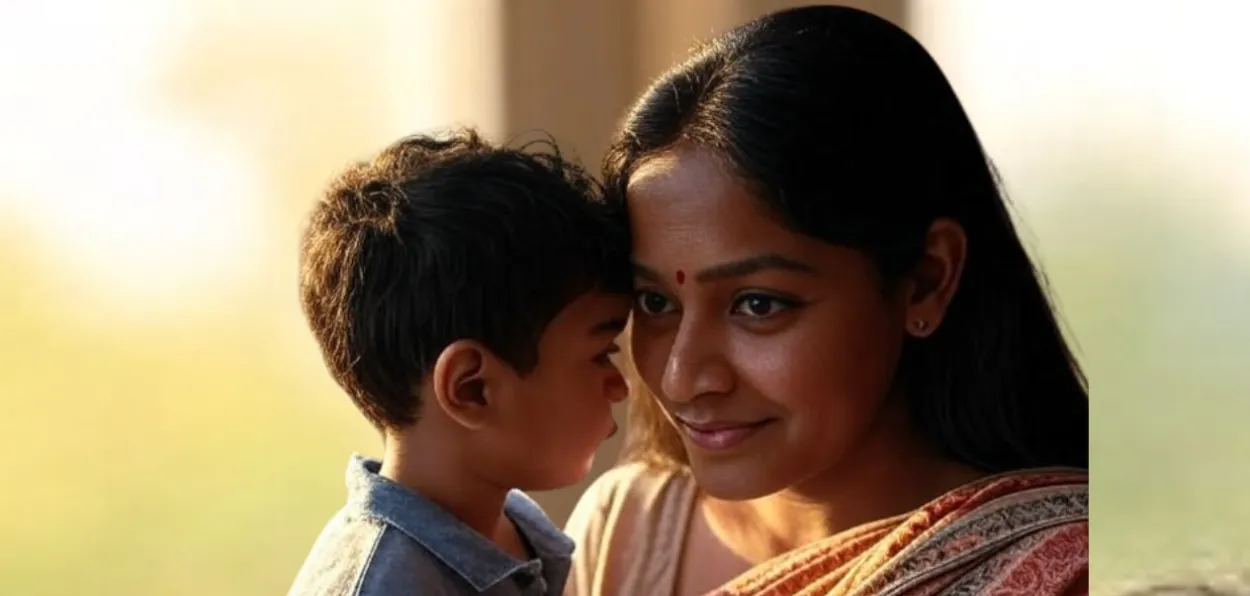
Sapna is a loving mom, a fierce advocate, and a storyteller from Delhi, walking hand in hand through life with her 4-year-old son, Taksh, who is on the autism spectrum. In this three-part series, she opens a window into their world -- sharing the laughter, the hurdles, and the quiet moments no one talks about. Her words aren’t just stories; they’re a way to reach out, to help others feel less alone, and to spark much-needed conversations about acceptance, empathy, and better support for families like hers. The First Part:
Dear Diary,
I always thought motherhood would feel like something out of a dream. And honestly, it often does. There’s magic in the little things—like the smell of Taksh’s hair after a bath, or tiny fingers wrapping around mine as if they belong there. The way he laughs when something delights him.
Mom's Diary - part I
It’s the kind of joy you don’t forget.But alongside all the beauty, there was this quiet, persistent feeling in the background. A whisper, or something telling me that our path might be a little different. Not worse, just different.
Taksh came into our lives on a pleasant March afternoon, a head full of hair and a cry that felt like the loudest, most beautiful sound I’d ever heard. The first few months were everything I’d expected—sleep-deprived, messy, exhausting, and yet full of love. He rolled over on time, sat up when he should’ve, and even walked early. But even then, something didn’t quite sit right. It’s hard to explain—it was like listening to a song you love, but one note always feels a little off.
Around the time when he turned two, I noticed he wouldn’t respond when I called his name. Sometimes, yes. But often, he just didn’t. At first, I brushed it off. Maybe he was focused. Maybe he was just being a boy. Everyone had advice: “Boys talk late,” “Don’t worry,” “Einstein didn’t speak till he was four.” I wanted to believe them. So I waited. I hoped.
 Sapna with her son Taksh
Sapna with her son Taksh
But the words didn’t come. Not in the way I imagined.
He didn’t point at things to show me what he wanted. He didn’t follow my finger when I tried to show him something. He flapped his hands when he was excited—there was something about movement that lit him up. It thrilled him, like it was the most fascinating thing in the world. He’d spin himself, going round and round, laughing as if that motion made everything in his world feel just right.
I remember the first time I typed “Why doesn’t my toddler respond to his name?” into Google. The word “autism” showed up more times than I could count. Every time I read it, I felt a strange mix of fear, guilt, and confusion. But I still wasn’t sure. Not until we saw his paediatrician, who gently nudged us toward a developmental specialist. That led to speech therapy... early intervention, and a lot of unknowns.
Then came the day the doctor said it out loud:
“Your child shows signs consistent with autism spectrum disorder.”
I felt like someone had pulled the floor out from under me. My husband and I sat there, holding hands like lifelines, trying hard to keep it together. Not because we didn’t love Taksh—God, we loved him more than anything—but because we were scared. Scared of what we didn’t understand. Scared of doing it wrong.
That night, after we put him to bed, I let the tears come. Not because something was “wrong” with Taksh, but because everything I’d imagined for him—his first day at school, birthday parties, friendships, conversations—suddenly felt fragile, like paper boats drifting into a storm.
Would people see him? Really see him? Would they be kind? Would they know how special he is?
But the next morning, as I watched him play, something shifted. He was sitting on the floor, spinning the wheels of his truck, humming to himself. He glanced up at me, just for a second, and gave me the tiniest smile.
That smile said everything.
He’s still my boy. He’s still magic. He’s not broken. He’s not less. He’s different, yes—but wonderfully, fiercely, beautifully different.
And if the world doesn’t understand him yet, I’ll help it try. That’s my job now—not to change him, but to stand by him, to learn from him, and to help others see the world through his eyes.
Since then, life’s been a mix of therapy appointments, routines that keep us grounded, and learning to celebrate the little victories. The first time he used a picture card to ask for juice, I cried. The day he hugged me without being prompted? I cried again.
This journey isn’t easy. But it’s ours. And it’s teaching me things I never would’ve learned otherwise—about patience, about resilience, about how joy can live in the smallest moments.
READ MORE: Dr. Faiyaz Ahmed Fyzie: A voice for the Pasmanda Muslims
I’m sharing this not because I have it all figured out, but because maybe someone out there feels the way I once did—unsure, scared, and a little lost. If that’s you, I just want to say this:
You’re not alone.
And your child is exactly who they are meant to be.
Till next time,
A Mom Who’s Still Learning, One Day at a Time.
(To be continued)
